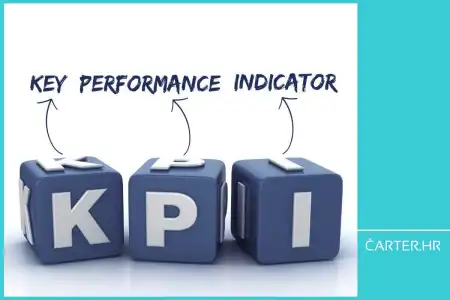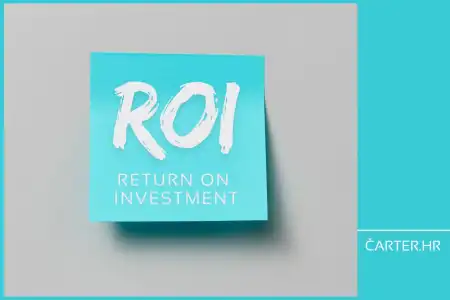
Ivica Žuro brings fresh news from Central Dalmatia - interest subsidies on investment loans are returning, encouraging entrepreneurial initiative. His new article brings us advice for smart investing, but also advice in the form of an old folk proverb: Never put all your eggs in one basket.
The pre-season is underway, and who doesn't make the final preparations until the work starts, tutta forza? It makes sense to keep an eye on what is happening on the market.
The fresh news that continues on the news from HAMAG is that in Central Dalmatia, interest subsidies on investment loans are returning to the big stage, in addition to Šibenik-Knin County, Split-Dalmatia County should encourage entrepreneurship through interest subsidies.
With this, this local self-government unit should give an additional impulse to encourage entrepreneurial initiative through active support.
Interest rate subsidies on loans have been active for a long time in cooperation with commercial banks and HBOR from the funds of the National Recovery and Resilience Plan, and this load, in part related to the green and digital transition, can fall to very low levels, so it is very interesting even in non-crisis times.
OK, we hear it very often - when was it not a crisis in our country?!? - which is a legitimate remark that describes the structural problems of the domestic economy...
But we will return to the topic with a note that they can only be overcome by leaving entrepreneurship alone—Ireland is doing this, and that is why it has a good situation—and by supporting value-added tourism, such as nautical tourism.
The lack of a lending process through HBOR (with a few folk sayings)
The disadvantage of the HBOR lending process is the long duration of the process.
However, charter.hr's partners would not be such that they do not have a solution to obtain subsidized interest from HBOR with very low financing costs.
It is a complex and solvable issue for which we are, of course, at your disposal.
We hope that the investments will generate new jobs, but also a better result that will bring sweet worries about what to invest money in, without it being just one type of investment.
You guessed it, this month's column will be about investment tips for peace of mind.
An old folk saying says: Little grows in someone else's hand.
Finance is an exception to the rule if you know what you are doing and if you do not hesitate to seek professional advice.
Money loses its value if it is not invested in new businesses or facilities even when the inflation rate is not high.
Interest rates on savings have been low for years, and it is certainly wise to consider or consult about what to do with the money to bring a return for later life situations.

What should you do if you don't know what you're investing in?
People have a proverb for that, and it says: Never put all your eggs in one basket.
An investment that doesn't aim to expand the core business - but to increase the value of assets - should include different types of assets or degrees of risk.
In addition to avoiding the situation where the eggs don't break if something hits the basket, there are still a few basic rules that apply to investing if we want to live long and do well on earth.
First and foremost, if you don't know how to explain to yourself what you're investing in - don't do it.
Furthermore, if it happens already now, only money is invested that you can absolutely live without and whose loss you can survive.
Keep in mind that the downfall of the whole story can always happen. Most investors see only the possibility of high earnings and are unaware of bad scenarios.
Furthermore, hot stories about a fund, stock or cryptocurrency should be cautiously approached.
If someone at a party or a child's birthday starts talking about such opportunities out of the blue - the possibility of making money has already passed.
You need to be sure which time horizon you are investing in. If you may need the money for less than 5 years - invest in assets with a lower risk category.
And don't listen to the self-proclaimed investment gurus who write beautifully but can't prove that they have any results in life in any field other than attracting attention.
Information about market value movements comes from various sources; it is your free judgment on whom to trust.

After the basics go... Credibility check, of course!
OK, we've covered the basics, we want to continue investing in some opportunities in the market, and what's the next step?
Checking the credibility of the broker or platform through which we intend to invest.
First of all, you should take care that the broker has all the necessary authorizations and is ready to prove it.
If it is an investment in stocks listed on domestic stock exchanges, the company for which the broker works must have an operating permit issued by the Croatian Financial Services Supervisory Agency - better known as HANFA - according to the provisions of the Capital Market Act coordinated with EU and global regulations.
If you are going to invest outside of Croatia, you should ask carefully who you are dealing with and ask them to confirm compliance with the regulations.
Namely, all companies operating in the EU must prove that they have implemented the MIFID II regulation, which refers to compliance for work on the capital markets.
If they don't attach the MIFID form to you when concluding a cooperation agreement - don't do business with them.
In Croatia, investment advisors are authorized to provide advice on specific investments in the capital markets. For this, they must be authorized by HANFA, i.e., they must have passed an exam in which they demonstrate investment portfolio management.
If the person you are talking to cannot prove that they have one of the 7 certificates of this agency, based on which they are allowed to give this kind of information - bypass it.
Serious companies emphasize these qualifications of their employees.
In the end, it's about your money.
Categories of trends
- News
- Sale
- Marketing
- SEO
- Web design
- Social media
- Technology
- Regulations
- Management
- Education
- Finances
- User experience
Newsletter
Sign up for the newsletter and receive the latest trends and tips straight to your inbox




